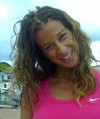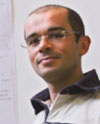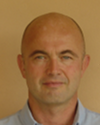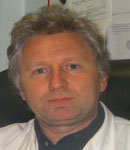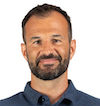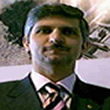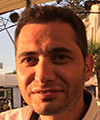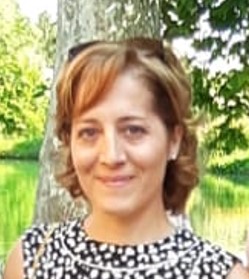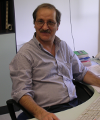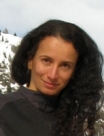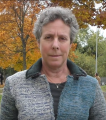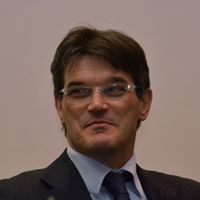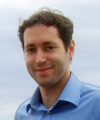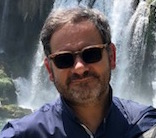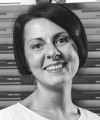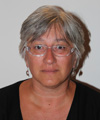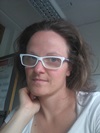Studying at the University of Verona
Here you can find information on the organisational aspects of the Programme, lecture timetables, learning activities and useful contact details for your time at the University, from enrolment to graduation.
Academic calendar
The academic calendar shows the deadlines and scheduled events that are relevant to students, teaching and technical-administrative staff of the University. Public holidays and University closures are also indicated. The academic year normally begins on 1 October each year and ends on 30 September of the following year.
Course calendar
The Academic Calendar sets out the degree programme lecture and exam timetables, as well as the relevant university closure dates..
| Period | From | To |
|---|---|---|
| I semestre | Oct 2, 2017 | Jan 26, 2018 |
| II semestre | Mar 5, 2018 | Jun 1, 2018 |
| Session | From | To |
|---|---|---|
| sessione invernale 2017/2018 - sessione straordinaria 2016/2017 | Jan 29, 2018 | Feb 28, 2018 |
| sessione estiva 2017/2018 | Jun 4, 2018 | Jul 6, 2018 |
| sessione autunnale 2017/2018 | Aug 27, 2018 | Sep 28, 2018 |
| Sessione invernale 2018/2019 - sessione straordinaria 2017/2018 | Jan 28, 2019 | Feb 28, 2019 |
| Session | From | To |
|---|---|---|
| sessione straordinaria 2016/2017 | Mar 19, 2018 | Apr 10, 2018 |
| sessione estiva 2017/2018 | Jul 9, 2018 | Jul 27, 2018 |
| sessione autunnale 2017/2018 | Oct 15, 2018 | Nov 5, 2018 |
| sessione straordinaria 2017/2018 | Mar 18, 2019 | Apr 5, 2019 |
Exam calendar
Exam dates and rounds are managed by the relevant Exercise Science Teaching and Student Services Unit.
To view all the exam sessions available, please use the Exam dashboard on ESSE3.
If you forgot your login details or have problems logging in, please contact the relevant IT HelpDesk, or check the login details recovery web page.
Should you have any doubts or questions, please check the Enrollment FAQs
Academic staff
 michele.andreaus@unitn.it
michele.andreaus@unitn.it
 manuela.basso@unitn.it
manuela.basso@unitn.it
 valentina.biino@univr.it
valentina.biino@univr.it
 stefano.biressi@unitn.it
stefano.biressi@unitn.it
 paolo.dellaquila@univr.it
paolo.dellaquila@univr.it
 caterina.pesci@unitn.it
caterina.pesci@unitn.it
 francescouguagliati@alice.it
francescouguagliati@alice.it
Study Plan
The Study Plan includes all modules, teaching and learning activities that each student will need to undertake during their time at the University.
Please select your Study Plan based on your enrollment year.
1° Year
| Modules | Credits | TAF | SSD |
|---|
2° Year activated in the A.Y. 2018/2019
| Modules | Credits | TAF | SSD |
|---|
| Modules | Credits | TAF | SSD |
|---|
| Modules | Credits | TAF | SSD |
|---|
Legend | Type of training activity (TTA)
TAF (Type of Educational Activity) All courses and activities are classified into different types of educational activities, indicated by a letter.
Theory and pedagogy of swimming (2018/2019)
Teaching code
4S000979
Teacher
Coordinator
Credits
3
Language
Italian
Scientific Disciplinary Sector (SSD)
M-EDF/02 - SPORT SCIENCES AND METHODOLOGY
Period
II SEMESTRE dal Mar 4, 2019 al May 31, 2019.
Learning outcomes
The course towards the means direct students to high abilities in the swimming didactic world by four olimpic strokes awarness and others water sports (syncro, waterpolo, rescue); first target: they must be able to understand the priorities of a didactic program and its management.
The students, stimulated by the discovery of movement in water so with multi-disciplinary cross motor experiences swimming sports most significant, can consolidate their knowledge and know-how, moving in the selection and conduct of individual activities in water sports such as swimming, rescue swimming, going to the basic fundamentals of synchronized swimming, water polo and diving. Knowledge of the characteristics of each discipline will be useful in teaching specific and appropriately transferred to an "aquatic" learning: the wealth of information and in-depth motion polyform proprietorship in water becomes therefore a strength among the learning objectives of this curriculum. I intend to have a series of teaching units for an integrated approach, methodological point of view, the movement in water: the acclimatization at four Olympic swims, with attention to rescue and sports fundamentals of synchronized swimming. The research of horizontal balance (by swimmers with the goal to go "faster") you can combine in any meaningful way with the study and research of efficiency of water transfers in a condition most of the previous vertical (typical of rescue, water polo and synchronized) Furthermore enriched by being "in situation", influenced by changing variables related to time and its interpretation. The curriculum is aimed at exploring the treaty context, the improvement of the ability of interpretation and execution staff and finally to identify effective teaching methodology for learning performance models. The course aims to develop in students the following skills:
-knowing how to drive a beginner to exploration, discovery and orientation in the water;
-knowing how to locate the main water transfer models;
-knowing how to understand and interpret blueprints of individual performance more significant;
-knowing how to teach performance patterns proposed;
-ability to use so educationally effective proposed items (different cross-examined individual sports), being able to enjoy teaching, each of the peculiarities of each.
Program
The movement in water
-familiarization (see-breath – are in balance).
-the technique, teaching techniques, the development of sensitivity to water.
Back Crawl, Breaststroke, Dolphin
-performance models: stroke amplitude and frequency ratio – arms, legs.
-The didactic progression.
-starts and turns (5th style)
Synchronized swimming
-structure, energy assistance, individual basic fundamentals.
-The teaching progression.
Rescue swimming sports
-structure, energy assistance, individual basic fundamentals.
-The teaching progression.
Underwater swimming
-structure, energy, fundamental individual intervention (the KAD project).
-The teaching progression
Water Polo
-structure, energy assistance, individual basic fundamentals.
-The teaching progression
Teaching methodology in water
-Bernstein problem
Enterprise mode and admission
Classes will consist of a theoretical and practical part (water exercise) with matching rereading and poolside interpretation of work done through video analysis, focus driven. Will stimulus situations required the recognition of sensations, in finding solutions that will find the opportunity for discussion and explanation.
We will offer each student a placement test to know the prerequisites and lived "aquatic" to dial peer groups within which you may have the uniformity of approach, as a guarantee of effectiveness to the experimental teaching personnel. The test, in addition to offering the student an objective reference staff, will enable us to assess the capabilities and skills of the student within: the curriculum will appeal only to those who have already gained experience enabling the interpretation of the proposed themes evolved. Students who have previously attended and successfully passed "technique and teaching of motor activity in water", for the purposes of admission and educational technique of swimming ", will incur only a criterion of swimming abilities; students who have not attended that course, in addition to having to take the test on skills in water.
Examination Methods
The examination will take place with a multiple-choice written test: thirty questions for thirty points available.
Teaching materials e documents
-
 Ambientamento
(vnd.ms-powerpoint, it, 2966 KB, 11/03/19)
Ambientamento
(vnd.ms-powerpoint, it, 2966 KB, 11/03/19)
-
 Il metodo
(vnd.ms-powerpoint, it, 187 KB, 11/03/19)
Il metodo
(vnd.ms-powerpoint, it, 187 KB, 11/03/19)
-
 Il quinto stile
(vnd.ms-powerpoint, it, 153 KB, 11/03/19)
Il quinto stile
(vnd.ms-powerpoint, it, 153 KB, 11/03/19)
-
 La funzione della battuta gambe crawl
(vnd.ms-powerpoint, it, 490 KB, 11/03/19)
La funzione della battuta gambe crawl
(vnd.ms-powerpoint, it, 490 KB, 11/03/19)
-
 Tecnica e didattica del Nuoto
(vnd.ms-powerpoint, it, 4858 KB, 11/03/19)
Tecnica e didattica del Nuoto
(vnd.ms-powerpoint, it, 4858 KB, 11/03/19)
-
 TEDNUOTOCRAWL
(vnd.ms-powerpoint, it, 4064 KB, 11/03/19)
TEDNUOTOCRAWL
(vnd.ms-powerpoint, it, 4064 KB, 11/03/19)
-
 TEDNUOTODELFINO
(vnd.ms-powerpoint, it, 449 KB, 11/03/19)
TEDNUOTODELFINO
(vnd.ms-powerpoint, it, 449 KB, 11/03/19)
-
 TEDNUOTODORSO
(vnd.ms-powerpoint, it, 1215 KB, 11/03/19)
TEDNUOTODORSO
(vnd.ms-powerpoint, it, 1215 KB, 11/03/19)
-
 TEDNUOTORANA
(vnd.ms-powerpoint, it, 645 KB, 11/03/19)
TEDNUOTORANA
(vnd.ms-powerpoint, it, 645 KB, 11/03/19)
Type D and Type F activities
| years | Modules | TAF | Teacher | |
|---|---|---|---|---|
| 1° | Anthropometry | D |
Carlo Zancanaro
(Coordinator)
|
|
| 1° | Biochemistry for sport | D |
Marta Palmieri
(Coordinator)
|
|
| 1° | Methodology of sport activities measures | D |
Luca Paolo Ardigo'
(Coordinator)
|
|
| 2° | Physiology of sport nutrition | D |
Silvia Pogliaghi
(Coordinator)
|
|
| years | Modules | TAF | Teacher | |
|---|---|---|---|---|
| 1° | Sports and drugs | D |
Roberto Leone
(Coordinator)
|
|
| 1° | Forensic medicine and social security | D |
Aldo Eliano Polettini
(Coordinator)
|
|
| 1° | Research methodology applied to sport | D |
Laurent Damien George Mourot
(Coordinator)
|
|
| 1° | Statistics applied to movement sciences | D |
Maria Elisabetta Zanolin
(Coordinator)
|
|
| 2° | Movement learning and outstanding sport people | D |
Paola Cesari
|
|
| 2° | Clinical biochemistry applied to sport activity | D |
Giuseppe Lippi
(Coordinator)
|
|
| 2° | Advanced nutrition for sports | D |
Silvia Pogliaghi
(Coordinator)
|
|
| 2° | Physiology of sport performance | D |
Enrico Tam
(Coordinator)
|
|
Career prospects
Module/Programme news
News for students
There you will find information, resources and services useful during your time at the University (Student’s exam record, your study plan on ESSE3, Distance Learning courses, university email account, office forms, administrative procedures, etc.). You can log into MyUnivr with your GIA login details: only in this way will you be able to receive notification of all the notices from your teachers and your secretariat via email and soon also via the Univr app.
Graduation
List of theses and work experience proposals
Student mentoring
Gestione carriere
Orario lezioni
L’orario delle lezioni comprende
Lezioni Frontali in aula
Esercitazioni e laboratori
Questi ultimi sono organizzati per gruppi dai singoli docenti responsabili dei corsi.
L'orario è pubblicato nel portale studenti
Modalità di frequenza
Vige l'obbligo di frequenza al 70% come specificato nel Regolamento di ogni singolo corso di laurea e laurea magistrale:
Ulteriori informazioni:
L'accesso alle pagine Moodle dei singoli insegnamenti è vincolato alla compilazione del piano di studi.
App Univr Lezioni, FAQ e guida all'utilizzo sono disponibili al seguente link: orario-lezioni-e-modalita-di-frequenza
Comunicati: Avvisi per studenti
Internships
Internships are aimed at enabling students to gain direct knowledge of the world of work and to acquire specific professional skills.
Internships are carried out under the responsibility of an individual lecturer, and can be carried out in professional firms, public administration bodies and companies recognised by the University of Verona.
Any CFU credits gained by doing internships will be recognised and recorded by the University in accordance with the relevant University regulations in force (Regolamento d’Ateneo per il riconoscimento dei crediti maturati negli stage universitari).
For further information on internships, please go to: https://www.univr.it/it/i-nostri-servizi/stage-e-tirocini.
Linguistic training CLA
Certificazione medica di idoneità
Riferimenti normativi principali: DM 24 aprile 2013 art. 3, GU 169 del 20-07-2013; Decreto del Ministro della Salute dell’8 agosto 2014 e s.m.i.
Per frequentare le attività dei corsi di Laurea e Laurea magistrale di Scienze motorie è obbligatorio presentare la certificazione medica di idoneità fisica per attività sportiva non agonistica. La certificazione è necessaria per accedere alle attività pratiche-esercitative e al tirocinio.
à COME OTTENERE LA CERTIFICAZIONE
La certificazione - riportante l’indicazione che è stato eseguito l’ECG a riposo - può essere rilasciata da:
- centri o servizi di medicina dello sport delle ASL (ora ATS) e delle aziende ospedaliere
- istituti della Federazione Medico Sportiva Italiana
- centri pubblici o privati autorizzati:
- dai medici di medicina generale di libera scelta, relativamente ai propri assistiti;
- dal medico specialista in medicina dello sport.
L’ECG a riposo deve essere ripetuto annualmente.
E’ ammesso anche il certificato medico di idoneità alla pratica sportiva agonistica, per chi ne fosse già in possesso.
à SCADENZA PER LA PRESENTAZIONE
La certificazione medica deve essere prodotta al momento dell'immatricolazione e, comunque, entro l’inizio delle lezioni alla Segreteria Corsi di Studio Scienze motorie. Spetta agli studenti rinnovarla annualmente alla scadenza - per ogni anno di iscrizione in corso o fuori corso. La Segreteria effettuerà periodicamente dei controlli sulla consegna dei certificati.
NOTA: Studenti immatricolati a seguito di SUBENTRO/RIPESCAGGIO/TRASFERIMENTO IN INGRESSO: se non è possibile rispettare la scadenza di presentazione del certificato sopra indicata, avvisare la Segreteria Corsi di Studio Scienze, scrivendo all’indirizzo certmed.scienzemotorie@ateneo.univr.it
à MODALITA’ DI CONSEGNA
La certificazione va inviata alla Segreteria Corsi di Studio Scienze motorie dalla propria e-mail istituzionale nome.cognome@studenti.univr.it all’indirizzo certmed.scienzemotorie@ateneo.univr.it.
Student login and resources
Competenze linguistiche
DOPO LA LAUREA TRIENNALE
Per proseguire gli studi in uno dei corsi di Laurea Magistrale dell'ambito delle Scienze motorie è necessario possedere competenze linguistiche almeno di livello B1 informatizzato (o superiore) specificamente di lingua inglese, poichè i corsi di studio di livello superiore prevedono nel proprio piano didattico la presenza di insegnamenti o di moduli impartiti dai docenti direttamente in inglese.
Inoltre, tali competenze costituiscono requisito di accesso indispensabile per poter partecipare alla prova di ìngresso oppure per iscriversi ad una laurea magistrale.
La conoscenza di altre lingue diverse dall'Inglese NON può venire riconosciuta come "requisito" utile per l'accesso ai corsi di laurea magistrale. Tuttavia, la certificazione posseduta potrà essere valutata da un'apposita Commissione di docenti ed eventualmente riconosciuta in termini di crediti (CFU) a scelta dello studente, presentando domanda al momento dell'immatricolazione.
Si invita a leggere con attenzione i bandi di concorso annuali per l'ammissione ai corsi di laurea magistrali per maggiori informazioni - consultare nel sito del corso di studio anche la sezione "Iscriversi".

 +39 045 842 5117
+39 045 842 5117


